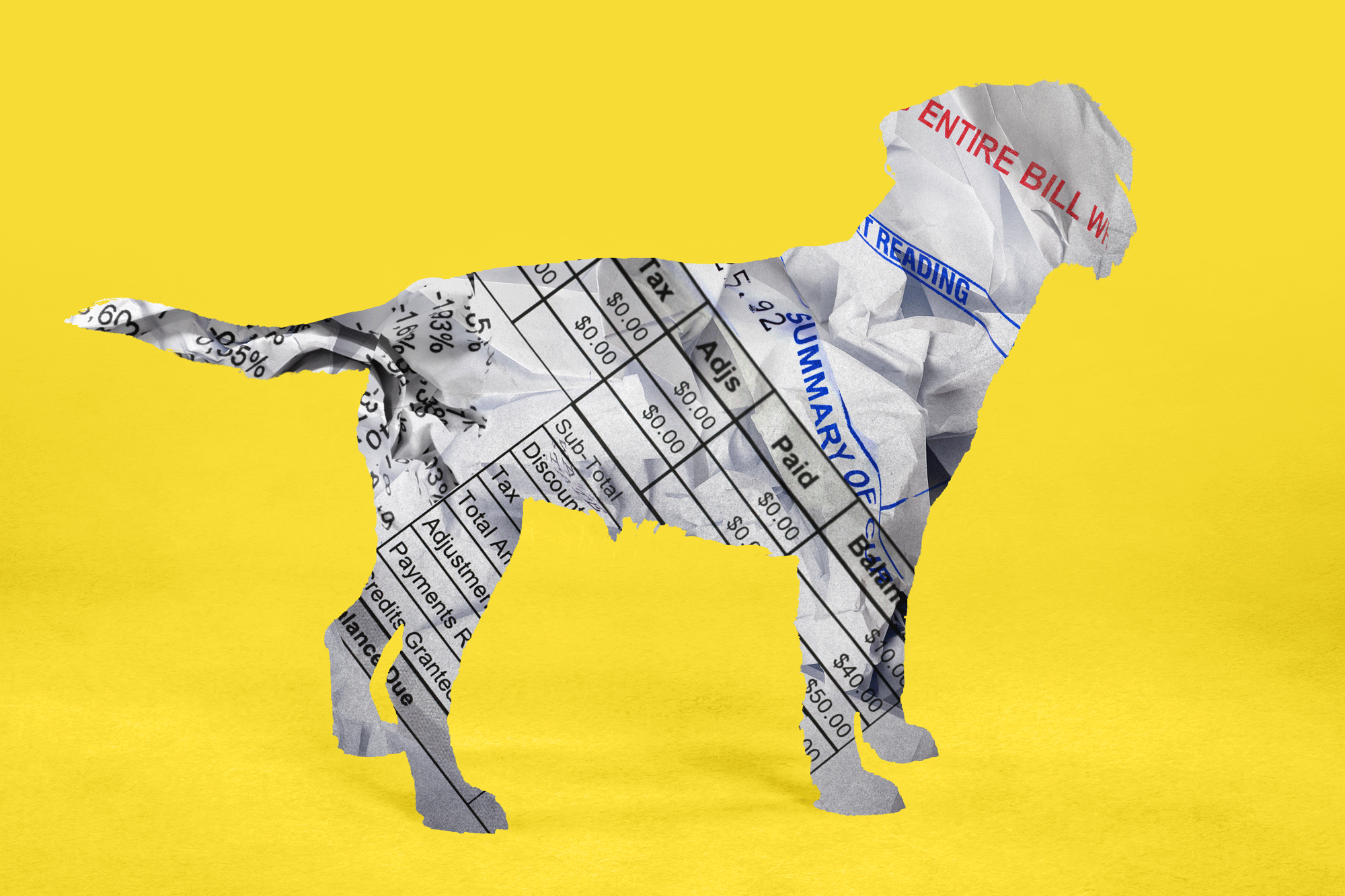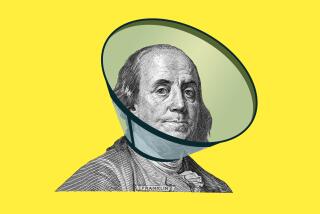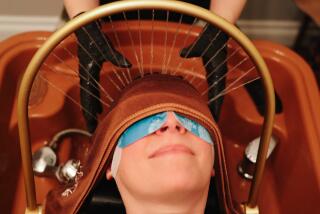Sick Pets Treated to Acupuncture : Veterinarian Sticks to Method Others Call Experimental
- Share via
‘The owner was desperate, so we started acupuncture treatment.’
--John Ottaviano
Every month, Harry Lichtman of Burbank loads Cindy, his 15-year-old mixed pointer-Dalmatian, into the family car and promises her she’ll soon feel better.
At the office of Burbank veterinarian Sheldon Altman, Lichtman watches as Cindy patiently endures her acupuncture treatments, which help the aging dog cope with liver problems, arthritis and rear limb weakness.
“When she comes out of treatment, she’s much better,” said Lichtman during a recent visit to Altman’s office. “She’s able to stand on her hind legs and she can jump into the back seat of the car. She has more pep.”
Lichtman began taking Cindy for the monthly treatments about six years ago, he said, and doesn’t plan to stop.
Like Lichtman, other pet owners are becoming enthusiastic about acupuncture, the ancient Chinese form of healing in which specific points in the body are stimulated by needles or other means, even though relatively few veterinarians and acupuncturists practice on animals.
Altman, a local pioneer in animal acupuncture, started using the technique nearly a decade ago. He estimates that only about 350 of the 50,000 practicing veterinarians in the country offer acupuncture, including a handful in the San Fernando Valley.
Advocates of animal acupuncture say it can help treat arthritis, skin problems, gastrointestinal ills, circulatory problems, limb weakness, paralysis and other conditions. Dr. John Craige, a Sherman Oaks veterinarian, finds acupuncture treatments especially helpful for so-called flea bite dermatitis and for tendon injuries.
Pets labeled as hopeless cases by veterinarians using only traditional treatments sometimes get a new lease on life when they visit veterinary acupuncturists, according to John Ottaviano of the Holistic Animal Center in North Hollywood.
He particularly remembers a cat with failing kidneys that had been written off by a veterinarian who referred the animal to the holistic center as a last resort.
“The owner was desperate, so we started acupuncture treatment,” recalled Ottaviano, an acupuncturist who is not a veterinarian, but practices with veterinarian John Limehouse. “The cat perked up the next day and on the fourth day I sent him back to the referring veterinarian. The blood workup was normal, and the owner has sent me thank-you cards and a progress report every month since.”
Not everyone is convinced of the value of animal acupuncture. In 1980, the American Veterinary Medical Assn., a nationwide group of about 40,000 veterinarians, issued guidelines on acupuncture.
“The AVMA has grave concern about acupuncture, regarding it as experimental,” the guidelines read in part. “The public must be protected from those who make claims for acupuncture that are not based on adequate controlled experiments or documented research.”
Altman believes it’s just a matter of time, however, before the AVMA changes its stance and endorses animal acupuncture. Most veterinarians, he believes, are becoming more open-minded about its possibilities.
Animal acupuncture, practitioners say, works on the same principle as human acupuncture. A life energy called chi , consisting of positive (yang) and negative (yin) components, flows through the body in channels called meridians. These meridians come close to the surface at places called acupuncture points. Each meridian corresponds to a particular organ from which or in which energy is generated or stored.
By stimulating specific acupuncture points or combinations of points--either by needles or other means--the body’s energy levels can be adjusted, re-establishing the body’s equilibrium and allowing healing to take place, acupuncturists say.
Altman said he tells pet owners that acupuncture is neither a cure-all or a miracle, but an alternative treatment.
“I don’t sell acupuncture,” said Altman, who estimated that about 40% of his patients receive acupuncture treatments. Instead, Altman describes alternative s to pet owners: medical treatment, surgical treatment or acupuncture. “Then I let them choose.”
Altman also gives pet owners the odds of acupuncture helping their animals. In 216 cases, involving more than 3,000 acupuncture treatments , mainly for chronic degenerative or pain-related disorders, nearly 65% of the animals showed a satisfactory response, he said.
Because acupuncture is relatively new to the Western world, Altman and others who practice the technique on animals find that pet owners frequently have misconceptions about it.
Some pet owners believe acupuncture is an “instant cure” and expect animals to feel better as soon as the treatment is completed. Not always so, said Altman. The number of treatments needed to alleviate a condition varies greatly. Veterinarians who practice acupuncture say some conditions clear up after just a few treatments, but frequent ongoing treatment may be necessary for other problems, especially chronic pain.
Pet owners not familiar with acupuncture often believe the needles will be uncomfortable for their pets. But most animals do not even flinch as the thin and flexible needles, varying from half an inch to two inches long, are inserted to depths of a quarter-inch to about an inch and a half.
More Precise
Other pet owners are surprised to learn that veterinary acupuncture is not always performed with needles. In electroacupuncture, for example, electrodes are used to electrically stimulate the acupuncture points. “It’s more precise and quicker than using needles,” Altman said. While an acupuncture treatment done with needles averages 20 minutes or so, electroacupuncture takes only about 10 minutes.
Some acupuncturists use moxa, a substance made from an herb that is placed on the skin, set afire and removed when the animal feels enough heat. It is not left on the skin long enough to cause burns. Acupuncture points can also be stimulated by deep finger pressure, ultrasound, injection of various substances and other methods.
The cost of acupuncture treatments varies, but several Valley vets said they charge $30 to $35 a treatment.
More to Read
Sign up for Essential California
The most important California stories and recommendations in your inbox every morning.
You may occasionally receive promotional content from the Los Angeles Times.













